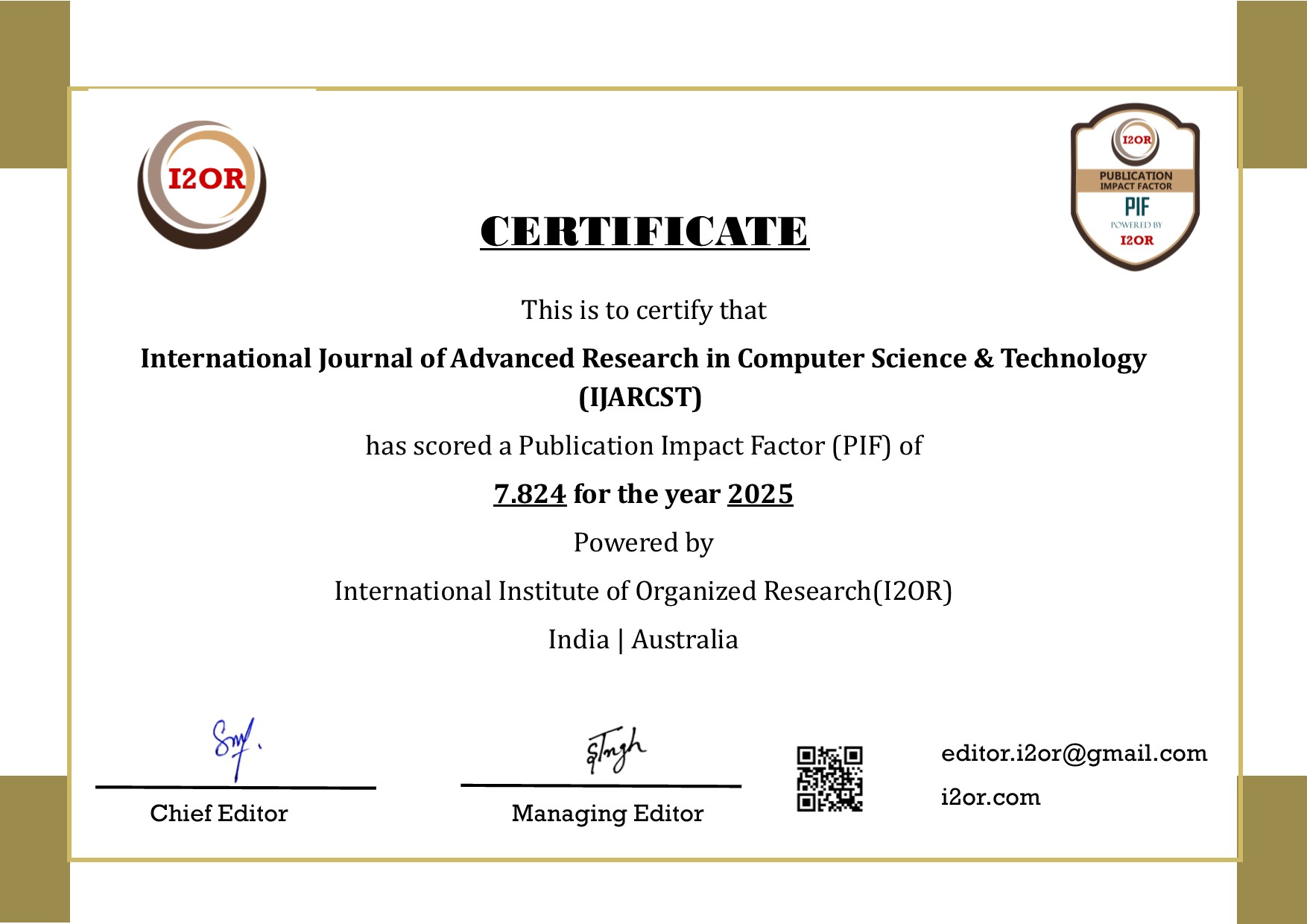Bias Mitigation in Machine Learning Models: Techniques and Challenges
DOI:
https://doi.org/10.15662/IJARCST.2023.0603001Keywords:
Machine learning fairness, Bias mitigation, Pre-processing, In-processing, Post-processing, Fairness metrics, Algorithmic fairnessAbstract
With increasing reliance on machine learning (ML) in high-stakes areas such as hiring, lending, healthcare, and criminal justice, bias in ML models has drawn critical attention. Bias may arise from historical data, algorithmic design, or deployment contexts, resulting in unfair or discriminatory outcomes. This paper explores the techniques and challenges in bias mitigation—from pre-processing, in-processing, to post-processing methods—and evaluates their effectiveness across varied contexts. Through systematic review of literature before 2022, we categorize mitigation methods: data rebalancing and transformation, fairness-aware learning objectives, adversarial debiasing, and output correction techniques. Building on that foundation, we propose a methodology composed of controlled experiments on benchmark datasets (e.g., COMPAS, UCI Adult) and real-world-case simulations to assess multiple techniques. We measure fairness using metrics such as demographic parity, equal opportunity, equalized odds, and individual fairness, while also tracking model accuracy and other performance indicators. Key findings indicate that while fairness-aware algorithms (e.g., adversarial debiasing or constrained optimization) reduce group-level disparities, they often do so at some cost in accuracy and individual-level fairness. Pre-processing approaches such as reweighing or sampling are simpler but may be insufficient in complex feature spaces. Post-processing offers flexibility but may violate group fairness constraints or produce inconsistent results across subgroups. We present a structured workflow that guides practitioners from bias detection and metric selection through mitigation, validation, and monitoring. We discuss advantages and disadvantages of each approach, highlighting trade-offs among fairness, utility, complexity, and transparency. In conclusion, mitigating bias remains a complex, context-dependent endeavor. We emphasize the need for hybrid solutions, stakeholder-informed fairness definitions, and continuous monitoring. Future work could examine adaptive methods, scalable mitigation for multi-class and multi-demographic scenarios, and user-centric tools to support fairness auditing in production pipelines.
References
1. Kamiran, F., & Calders, T. (2012). Data preprocessing techniques for classification without discrimination. Knowledge and Information Systems, 33(1), 1-33.
2. Zemel, R., Wu, Y., Swersky, K., Pitassi, T., & Dwork, C. (2013). Learning fair representations. Proceedings of the 30th International Conference on Machine Learning (ICML).
3. Zafar, M. B., Valera, I., Gomez Rodriguez, M., & Gummadi, K. P. (2017). Fairness constraints: mechanism design for fair classification. Artificial Intelligence and Statistics (AISTATS).
4. Zafar, M. B., Valera, I., Rodriguez, M. G., & Gummadi, K. P. (2019). Fairness beyond disparate treatment & disparate impact: learning classification without disparate mistreatment. Proceedings of the 26th International Conference on World Wide Web (WWW).
5. Zhang, B. H., Lemoine, B., & Mitchell, M. (2018). Mitigating unwanted biases with adversarial learning. Proceedings of the 2018 AAAI/ACM Conference on AI, Ethics, and Society (AIES).
6. Hardt, M., Price, E., & Srebro, N. (2016). Equality of opportunity in supervised learning. Advances in Neural Information Processing Systems (NeurIPS).
7. Pleiss, G., Raghavan, M., Wu, F., Kleinberg, J., & Weinberger, K. Q. (2017). On fairness and calibration. Advances in Neural Information Processing Systems (NeurIPS).
8. Feldman, M., Friedler, S. A., Moeller, J., Scheidegger, C., & Venkatasubramanian, S. (2015). Certifying and removing disparate impact. Proceedings of the 21th ACM SIGKDD International Conference on Knowledge Discovery and Data Mining.
9. Dwork, C., Hardt, M., Pitassi, T., Reingold, O., & Zemel, R. (2012). Fairness through awareness. Proceedings of the 3rd Innovations in Theoretical Computer Science Conference (ITCS).
10. Kleinberg, J., Mullainathan, S., & Raghavan, M. (2016). Inherent trade-offs in the fair determination of risk scores. Proceedings of the 8th Innovations in Theoretical Computer Science Conference (ITCS).
11. Friedler, S. A., Scheidegger, C., & Venkatasubramanian, S. (2019). The (im)possibility of fairness: different value systems require different mechanisms for fair decision making. Communications of the ACM, 64(4), 136–143.
12. Fish, B., Kun, J., & Lelkes, Á. (2016). A confidence-based approach for balancing accuracy and fairness. Proceedings of the 2016 Conference on Fairness, Accountability and Transparency (FAT*), Workshop.





